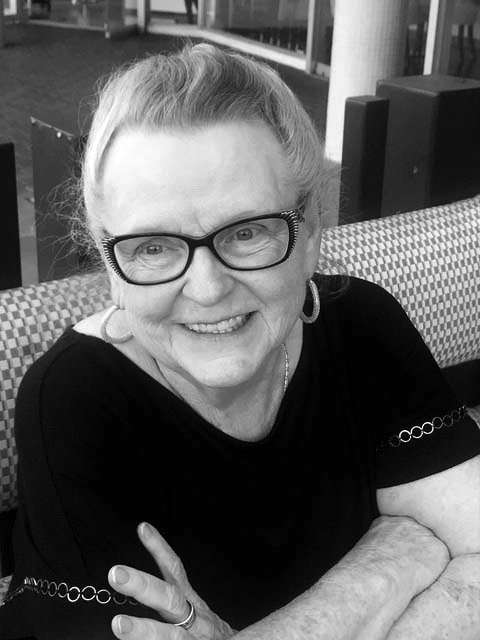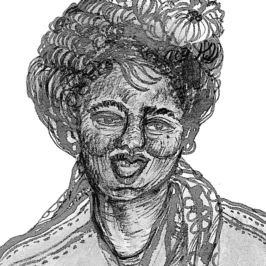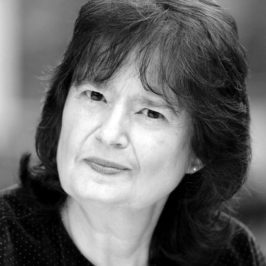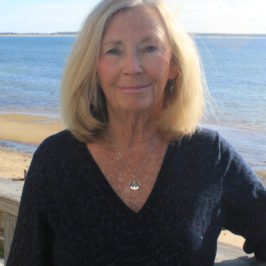


Core memories, with pieces by Ellen Hirning Schmidt, Maureen Murphy Woodcock, Maryhelen Snyder.
7 minutes
TRANSCRIPT
Beginning of September. For us at Passager, it means back to work. For lots of children, teens, young and not so young adults, though, it means back to school.
Here’s an excerpt from Ellen Hirning Schmidt’s prose poem “She Sits at the Desk in Front of Me.”
She sits at the desk in front of me, turns around again, grinning and tells me something funny and we laugh. Still grinning, she tells me that her daddy is in jail. Greasy strands of hair hang around her face. Carol Ann, how many times do I have to tell you not to turn around? Mrs. Armstrong asks, but isn’t really asking, through her teeth.
Mrs. Armstrong runs a strict third grade. Every morning first thing, top boy and top girl student, Bobby Abbey and I, get to stand up in front of the classroom. Under the pointy stick holding the flag at an angle, Bobby says, Attention, Salute! We all put our right hands on our hearts looking up at the flag. (I touch where Mom combs the part in my hair because I know it’s on the left so I can figure out which is my right hand.)
One day when we enter the classroom, our mouths make O’s when we see Carol Ann.
We stand for the Pledge and the Prayer AllmightyGodweacknowledgeourdependenceuponthee Andbegthyblessingupon-usourparentsourteachersandourcountryamen.
A large piece of duct tape covers Carol Ann’s mouth.
An excerpt from “She Sits in the Desk in Front of Me.” Ellen Hirning Schmidt said, “The memories of Carol Ann and the atrocious cruelties she endured are seared indelibly in my mind and heart. These memories influenced me to embark on my first career, special and early childhood education. I have often wondered what became of Carol Ann: it was clear to me even then that she was a prisoner of her past and her future.” Passager published Ellen’s poem in Issue 74, the trauma issue.
Maureen Murphy Woodcock said, “I’m a modern Celtic woman. Before I learned to read and write, I listened to my Scottish, Welsh and Irish relatives tell stories about themselves and our ancestors. It was a family sport. We Celts learn to talk before we walk. For us, our oral tradition is a pedestal that supports our writings.” Here’s an excerpt from Maureen’s short story “Japanese Blowfish and a Wooden Soo-Boy.”
Mr. Raney, my sophomore biology teacher, was an elegant man. He stood a couple of inches over six feet tall, and though he was only in his forties, his hair was wavy and nearly white. His ears were flat against his head and his nose came out from his forehead at just the right Roman angle and length. His eyes were a vivid sparkling blue, and his teeth were slightly flawed – one of his incisors was crooked which made them real and naturally perfect. He seemed to have all the ingredients of an ideally created man.
My love for Walter Raney wasn’t an easy infatuation. It was a love that required me to labor, to give him my best homework, my finest oral reports, my full attention, my adolescent academic soul. When I served him quality work, submitted polished reports as if they were sacred offerings, he sparkled. His blue eyes grabbed the light and flashed it back at me with a look that said, “Well done, young lady!” I was certain the muscles at the edges of his lips fought the temptation to brush my cheek before they changed directions and merely smiled at me.
An excerpt from “Japanese Blowfish and a Wooden Soo-Boy” by Maureen Murphy Woodcock from the Winter ‘22 issue of Passager.
Maryhelen Snyder wrote about an experience she had when she went back to school later in life. She said, “My response to watching the wrinkles on my aging body increase noticeably from year to year was to decide to fall in love with its beauty as I had with the hundred-year-old cottonwood tree in our backyard. My hands and thighs bore a growing resemblance to the deeply creviced bark of this beloved tree. I told my art teacher that if he ever needed a fill-in model to pose nude, I would be happy to volunteer.” And he did. And she did. Here’s her poem “On Modeling Nude for My Art Class at the Age of 65.” It begins with this epigraph by Auguste Rodin: “It often happens that the more a creature is ugly in nature, the more it is beautiful in art.”
Tonight I strip
for the chalk of the amateurs,
pose,
serve as an original,
strike a variety of attitudes,
bare
this thinning membrane over bones,
blood, lift
my arms from my sides as they lift
when the forest opens up
on an inpour of light, blue hills.
Tonight I model,
stand as
small measure
of the history
of body, woman, age.
In the room a friend
marks on her paper
this furrowed thigh, this branched hand,
this stretched place under my arm
where the breast is hung,
marks
what art is,
her eyes on me,
my eyes on her.
From Passager’s 2013 Poetry Contest issue, Maryhelen Snyder’s poem “On Modeling Nude for My Art Class at the Age of 65.”
To subscribe to or learn more about Passager and its commitment to writers over 50, go to passagerbooks.com. You can download Burning Bright from Spotify, Apple and Google Podcasts, and various other podcast apps.
For Kendra, Mary, Christine, Rosanne and the rest of the Passager staff, I’m Jon Shorr.






